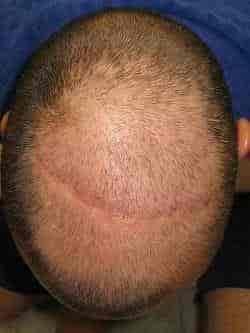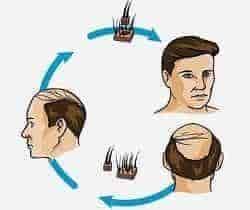12 Reasons Why 70% of People Snore in USA
Nobody likes a snorer for a bedmate. The moment the engine-like sound begins, falling asleep is impossible. Even if you already did, it will rouse you from the sweetness of your sleep and the dreams in it in the middle of the night.
Snoring is an indication of a sleep disorder and the snorer is expected to have fewer hours of quality sleep every night. People who sleep with the snorer, suffer from sleep deprivation as much as the snorer, though.
There are currently about 90 million American adults who snore—37 of them do it on a regular basis. Although in itself, it seems normal, it may indicate a more serious condition such as sleep apnea—a sleep disorder that could become dangerous if not treated earlier.
What causes snoring? Why do humans have to snore? Does it have any benefit at all?
History of snoring
If you’re ever wondering whether early humans snore, the answer is definitely no. For one, there is no evolutionary advantage to snoring. If ever there were snorers among early humans, they would inform predators of their whereabouts and vulnerability. It wouldn’t only endanger the snorer—but the entire group with him, as well, thus breaking a genetic line for snorers.
What causes snoring?
Snoring is simply noisy breathing one makes when asleep. While asleep, the majority of the muscles in the human body relax. This includes the muscles of the throat and the tongue. When relaxed, the tongue tends to fall background for most people. Also, the relaxed muscles of the throat make the air passage narrower and a bit floppy.
When air moves through the throat, these areas vibrate causing the noise we associate with snoring. For most people, breathing in air doesn’t cause as much vibration as breathing out. In fact, for some people, although these areas vibrate, the noise is not audible enough.
It is when certain changes happen in these parts of the body that snoring starts to become audible and pose threat to one’s health.
Here are some common factors among Americans that cause snoring:
#1 Sedentary lifestyle
Recent data on physical activity in America reveals that only 1 in 5 adults meet the Guidelines for Physical Activity (2008). Inactivity causes weight gain which results in the increased amounts of fat at the back of the throat and contributes to snoring.
#2 Poor eating habit
Americans prefer bacon and burgers over vegetables, fish, and nuts, according to a recent study. These foods contain large amounts of simple carbohydrates and omega-6 fatty acids.
Simple carbs easily spike up the blood sugar levels which results in the increase of insulin levels. When insulin levels are particularly high, the body is restricted from accessing fat as an energy source. In addition, it promotes fat storage from excess sugar.
Omega-6, on the other hand, when present in amounts higher than omega-3, can promote inflammation and potentiate the inflammatory effects of the fat cells. These two factors can contribute to the narrowing of the air passage which worsens snoring.
#3 Alcohol intake
Alcohol, in certain amounts, greatly affects motor skills. In addition, it also relaxes the muscles. This includes the muscles in the throat. After drinking alcohol, the muscles in the throats relax more than usual making it more floppy thus causing a person to snore louder.
In America, alcohol use is estimated to be 73%. Furthermore, 13% of the population is estimated to have alcohol use disorder. No wonder 70% of people in the US snore.
#4 Sleep deprivation
On average, Americans sleep 6.8 hours a day—12 minutes short of the minimum 7 hours for a restorative sleep and an hour and 12 minutes short of the 8-hour optimum sleep. In addition, 40 percent of the population sleeps less than 6 hours a night.
The relationship between sleep deprivation and sleep disorder is more cyclical than linear. Sleep deprivation can cause sleep disorder which in turn causes more sleep deprivation. The cycle continues until one suffers from a health issue or fixes the problem.
#5 Fatigue
When a person is exhausted, muscles, such as that at the back of the throat, tend to relax more than usual during sleep. This is why people who are fatigued tend to snore louder than they normally do.
#6 Stress
Stress can have a serious impact on snoring and sleep apnea—especially if it becomes chronic. When stressed out, muscle tension increases. It can cause bruxism or the grinding of the teeth. Teeth grinding produces stress on the joints of the jaw and forces the tongue backward. The narrowed airway makes the fats and muscles vibrate more strongly causes a louder snore.
#7 Physiology
One most important factors for snoring is the shape of the throat. The genetic propensity for snoring varies from one race to another. Black people, for instance, are 2.5% more likely to snore than white people. As race in the US continue to diversity, the genetic predisposition for snoring is somewhat leveled. Coupled with the factors mentioned above, Americans have increased chances of contracting sleep apnea.
#8 Excessive sugar intake
On average, an American consumes about 66 pounds of sugar a year. That is way more than what early humans consume. Sugar has become one of the most accessible sources of energy to everyone that it tends to get abused.
Excess sugar in the blood easily transforms to fat in the presence of insulin. The belly and the neck tend to be among the areas that stores fat first. Increased fats on the neck narrow down air passage and increase tissue density making snoring worse.
#9 Chronic dehydration
With most Americans buying soda than water, doctors believe that 75% of the adult population in the US is probably suffering from a chronic mild dehydration.
During sleep, without enough hydration, the throat can get dry. For 6 hours or so of breathing while the throat dry, it can cause inflammation. This reduces the area of the airway thereby increasing air pressure during breaths. This also makes the tissues at the back of the throat floppier as it increases in volume. This makes snores louder and increases the number of breathing interruptions a person experiences during sleep.
#10 Low-level inflammation
Low level inflammation is caused by a number of factors including fat tissues. In overweight people, the ability of the immune system to function normally is reduced thus considers fat cells as foreign bodies causing a low-level inflammatory response. This weakens the person’s immune response further making him or her more susceptible to respiratory issues such as cold and sore throat—conditions that contribute greatly to snoring and sleep apnea.
#11 Gluten consumption
Gluten makes the digestive tract more permeable. As a result, various proteins leak out into the bloodstream. This can cause autoimmune diseases and can lower the body’s tolerance to certain allergens.
A person who has a sensitivity to gluten and has consumed it for some time may exhibit increased sensitivity to allergens both found in food and air. Swollen tonsils, for instance, as an allergic response to a food that one has eaten, can narrow down the airway in the throat contributing to snoring.
#12 Self-medication
Snoring and sleep apnea are often thought of as mild conditions and left untreated. About three-quarters of Americans do not see their doctors for their conditions.
Snoring is a condition that needs to be treated earlier in order to prevent it from progressing into a more serious condition. Ignoring it is one of the reasons nearly three-quarters of Americans continue to snore.
Conclusion
Snoring can increase a person’s chances of dying while asleep. For instance, the frequent breathing and sleep interruptions a snorer experiences during the night does not only prevents him or her from getting a restorative sleep, it also increases his or her chances of cardiovascular diseases including stroke.
If you have one or more of the above-listed causes of snoring—and you snore—then it’s enough a reason for you to seek out medical help and fix you’re snoring once and for all.
Author Bio: Usman Raza is a freelance writer, marketing specialist at Zensleep.comand co-founder ofUsmanDigitalMedia.com. When not working, he’s probably spending time with his family. Follow him on Facebook @usmanraza40 and Twitter @usmanintrotech.
*****





.jpg)



